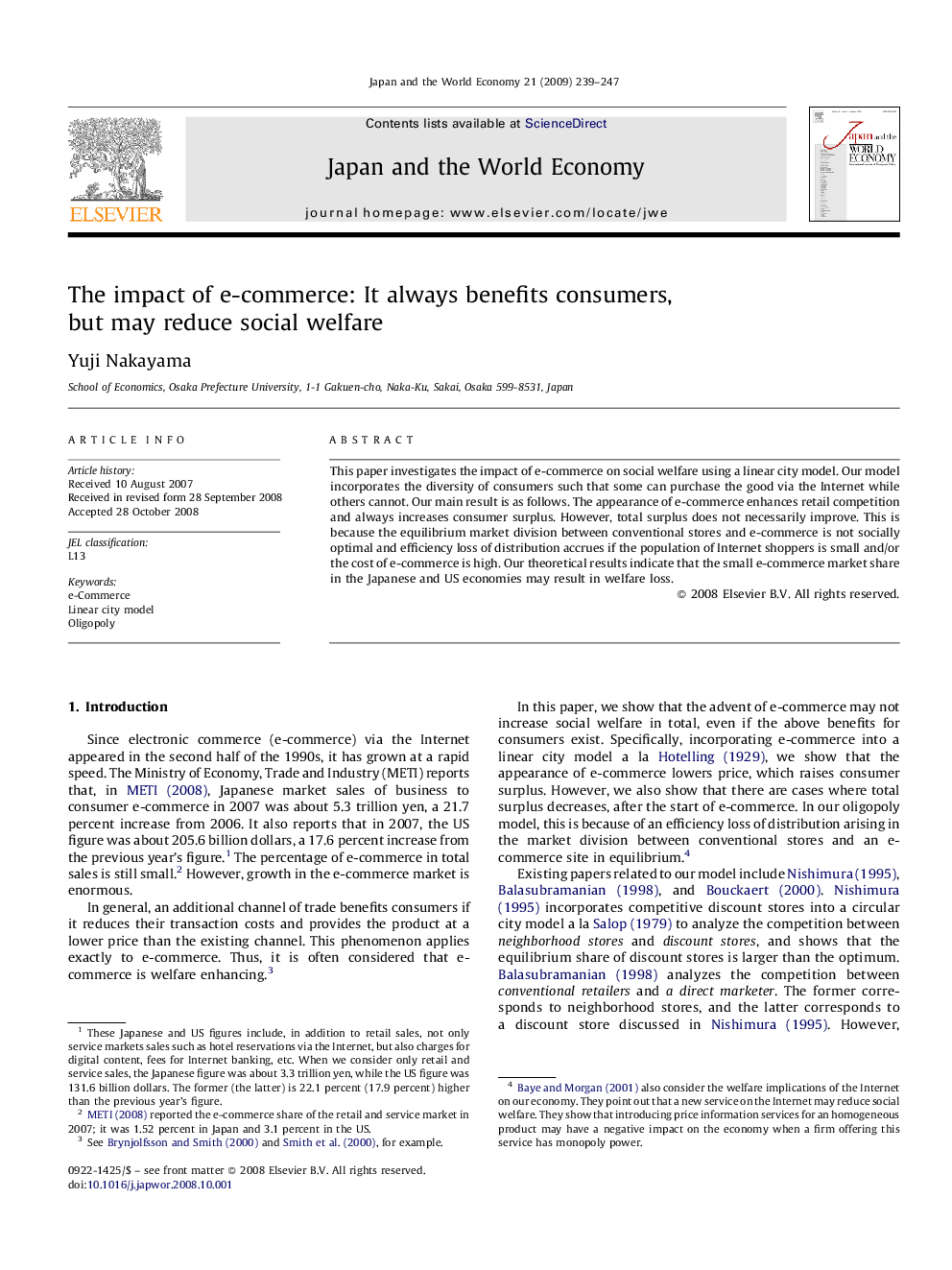| Article ID | Journal | Published Year | Pages | File Type |
|---|---|---|---|---|
| 5086305 | Japan and the World Economy | 2009 | 9 Pages |
Abstract
This paper investigates the impact of e-commerce on social welfare using a linear city model. Our model incorporates the diversity of consumers such that some can purchase the good via the Internet while others cannot. Our main result is as follows. The appearance of e-commerce enhances retail competition and always increases consumer surplus. However, total surplus does not necessarily improve. This is because the equilibrium market division between conventional stores and e-commerce is not socially optimal and efficiency loss of distribution accrues if the population of Internet shoppers is small and/or the cost of e-commerce is high. Our theoretical results indicate that the small e-commerce market share in the Japanese and US economies may result in welfare loss.
Keywords
Related Topics
Social Sciences and Humanities
Economics, Econometrics and Finance
Economics and Econometrics
Authors
Yuji Nakayama,
